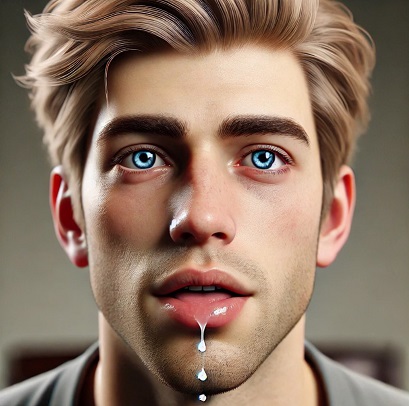Nikhil Prasad Fact checked by:Thailand Medical News Team Oct 14, 2024 1 year, 2 months, 1 week, 4 days, 10 hours, 23 minutes ago
Medical-News: Saliva as a Critical Marker in Early COVID-19 Immune Response
A recent study by researchers from multiple institutions has uncovered how SARS-CoV-2 disrupts the immune system in the oral cavity during early infection. By studying saliva samples, the team highlighted significant immune dysregulation that could play a role in how the virus evades the body's defense mechanisms. This
Medical News report delves into the findings and explores how understanding these local immune responses can help in diagnosing and managing COVID-19.
 Saliva may hold the key to early detection of SARS-CoV-2 immune responses
Saliva may hold the key to early detection of SARS-CoV-2 immune responses
Image: AI Generated
The research team includes scientists from the University of North Carolina at Chapel Hill-USA, the University of Florida-USA, and the J. Craig Venter Institute-USa, among others. Their study focused on the immune reactions occurring in the saliva of COVID-19-positive individuals, revealing key insights into the interaction between the virus and the body’s local immune system.
How the Study Was Conducted
The study involved 314 adults between the ages of 18 and 65, who were divided into two groups: one made up of 277 COVID-19-positive individuals and another consisting of 37 healthy control participants. Saliva samples were collected from both groups and analyzed using advanced multiplex technology. The researchers were particularly interested in the levels of cytokines, chemokines, and antibodies in the saliva, as these are vital components of the immune system's response to infection.
Using these samples, the team was able to map out the salivary immune landscape during the early stages of COVID-19 infection. They found that the virus significantly affected the levels of various immune markers, leading to both upregulation and downregulation of critical immune pathways.
Key Findings on Immune Suppression
One of the most striking discoveries was that early SARS-CoV-2 infection is associated with a decrease in the levels of certain interferons, particularly types I and III. Interferons are essential proteins in the body’s antiviral response, and their suppression could be a strategy employed by the virus to evade immune detection and spread more effectively. Additionally, the study found that natural killer (NK) cells and T-cells, which play a crucial role in identifying and eliminating infected cells, were also suppressed.
In contrast, the researchers observed an increase in several proinflammatory markers, such as pentraxin-3 and chitinase-3-like-1. These proteins are associated with inflammation and tissue damage, suggesting that while the virus dampens certain immune responses, it triggers an overactive inflammatory response. This dual effect may explain some of the more severe symptoms of COVID-19, such as lung inflammation and respiratory distress.
The findings also suggested that the virus could still suppress certain immune responses in vaccinated individuals, although to a lesser degree than in unvaccinated participants. This underscores the ne
ed for continued research into how different types of vaccines affect mucosal immunity and long-term protection against variants.
Saliva as a Diagnostic Tool
One of the most promising aspects of this study is the potential for saliva to be used as a diagnostic and prognostic tool for COVID-19. The ease of collecting saliva, compared to blood or nasal swabs, makes it an attractive option for widespread testing. The researchers believe that salivary cytokine and antibody profiling could help predict disease severity, monitor vaccine effectiveness, and identify individuals at risk of long COVID.
In addition, the study suggests that analyzing the salivary immune profile could be valuable in tracking the progression of the disease over time. By comparing samples taken at different stages of infection, clinicians may be able to assess how the immune system is responding and adjust treatment strategies accordingly.
Conclusions
The study's findings offer a new perspective on the immune dysregulation that occurs in the oral cavity during the early stages of SARS-CoV-2 infection. By focusing on saliva, the researchers were able to identify critical immune pathways that are disrupted by the virus, leading to both immune suppression and excessive inflammation. This dual action may help explain why some individuals experience more severe symptoms and complications from COVID-19.
Moreover, the study highlights the potential of saliva as a non-invasive and accessible tool for diagnosing and monitoring COVID-19. As the pandemic continues to evolve, understanding these local immune responses will be crucial in developing more effective treatments and preventive measures.
The study findings were published in the peer-reviewed Journal of Dental Research.
https://journals.sagepub.com/doi/full/10.1177/00220345241271943
For the latest COVID-19 News, keep on logging to Thailand
Medical News.
Read Also:
https://www.thailandmedical.news/news/new-study-reveals-oral-markers-may-predict-covid-19-disease-course
https://www.thailandmedical.news/news/individuals-with-long-covid-after-omicron-infection-show-altered-oral-microbiota
